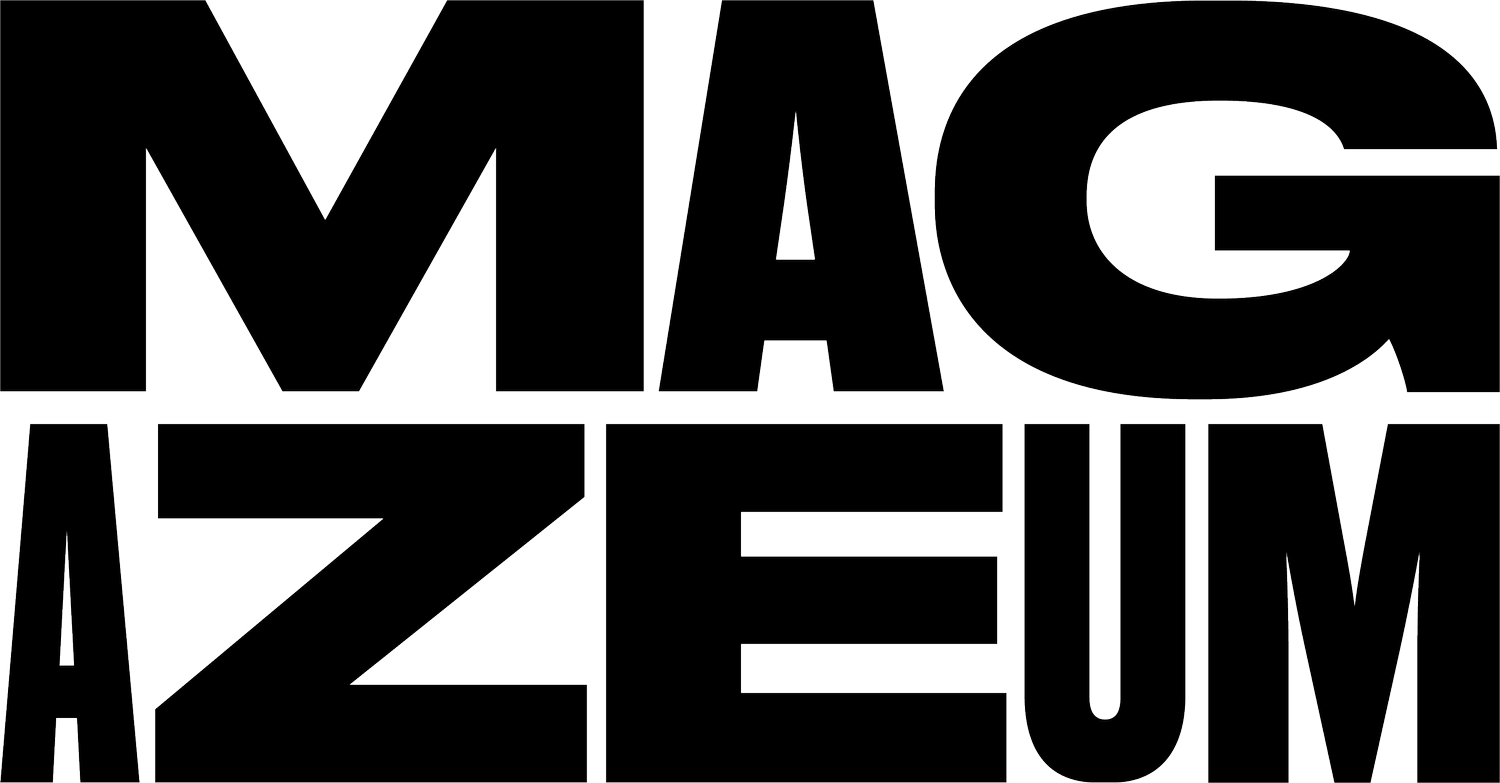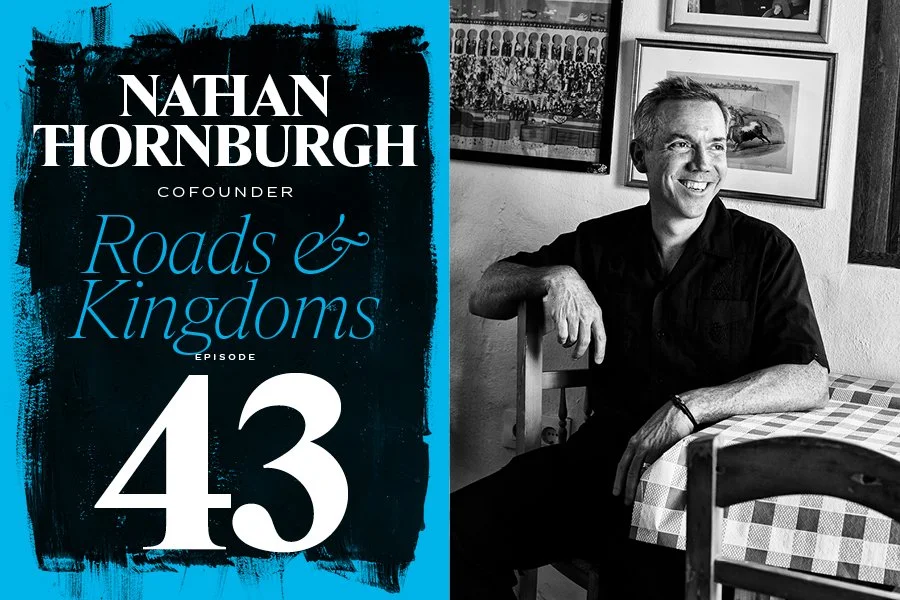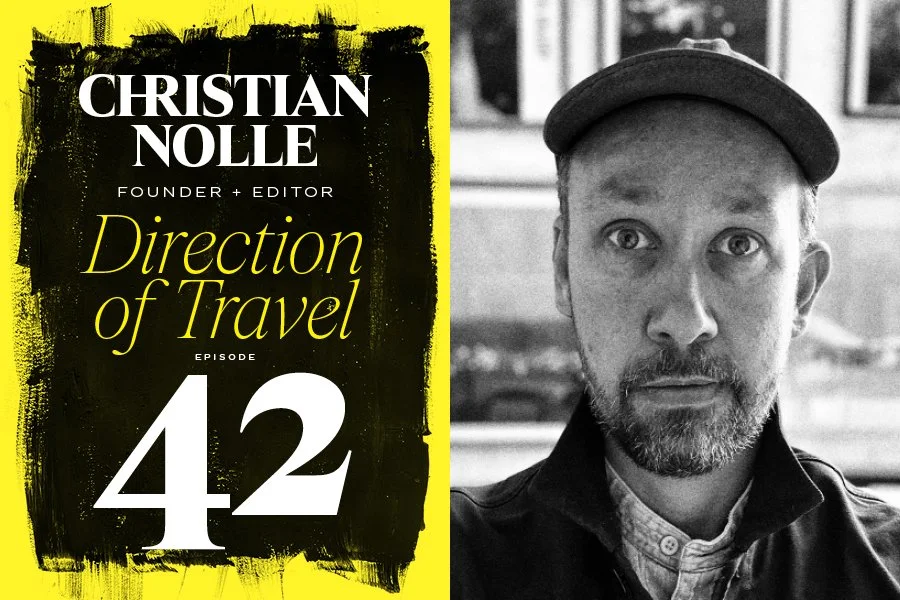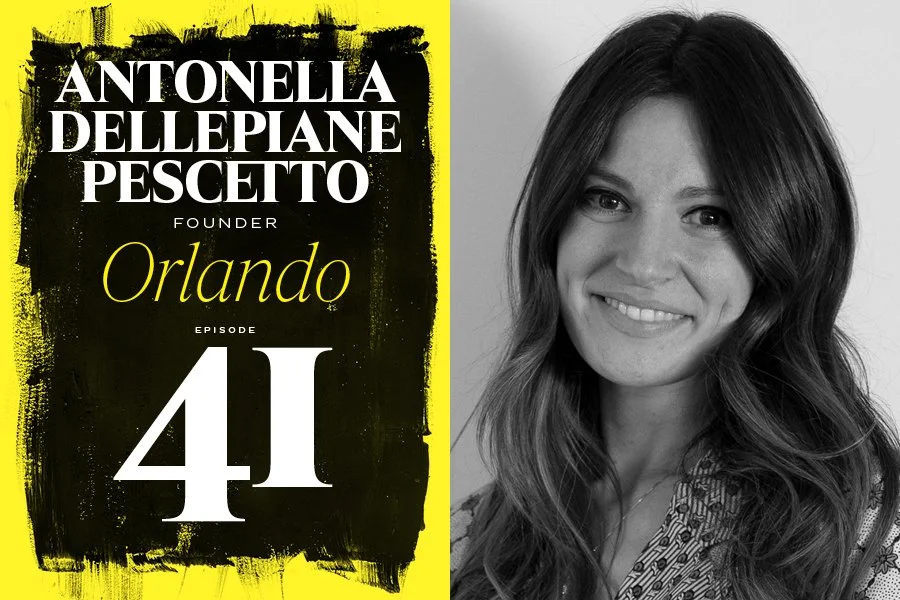Run to the Light
A conversation with Alex Heeyeon Kil, editor-in-chief of Monochromator
—
THIS EPISODE IS MADE POSSIBLE BY OUR FRIENDS AT FREEPORT PRESS.
A monochromator is an optical device that separates light, like sunlight or the light from a lamp, into a range of individual wavelengths and then allows …
… Sorry. I failed physics the last time I took it and I would fail it again. I’m not telling you about my shortcomings for any reason, because a podcast about my shortcomings would be endless.
But I thought I’d look up the word when confronted with Monochromator magazine, which aims to “deconstruct selected films under a shared monochrome to reconstruct them for social relevance.” Look, that’s what it says on the website.
But when you read the magazine, you get it. This is politics and social issues filtered through big movies. How big? The first issue uses Barbie and Oppenheimer to examine the rise of American power (hard and soft).
Having said that, it’s very interesting reading and not heavy. And editor Alex Heeyeon Kil is not even sure she’s editing a film magazine. She sees Monochromator as a discussion about the real world using fictional stories, in this case movies. And her team, divided between South Korea and Germany, publish this annual magazine knowing they might step on more than a few landmines.
Strap in. Or turn on a lamp and take a look at the light and maybe you’ll understand what you’re seeing better than I ever will.
Arjun Basu: How did this magazine come about?
Alex Heeyeon Kil: Okay, that’s a big question. We have a sister magazine called Prism Of. And this magazine started in 2015. It started in Seoul, and now it is the biggest film criticism magazine in Korea. In 2022, when Prism Of was seven years old, the CEO of this magazine, the publisher of Prism Of, felt like the company was ripe for another challenge.
I knew her personally and she approached me and proposed another film magazine that was published in English, meant to be distributed internationally. That is how Monochromator came about.
Arjun Basu: Okay, so the other magazine is in Korean.
Alex Heeyeon Kil: Yes.
Arjun Basu: In Korean for Koreans?
Alex Heeyeon Kil: Yes, precisely. It is the best selling film criticism magazine in Korea. We felt the need to expand our market. We knew what we were doing was very good, and we knew that what we were doing could resonate with more people. But of course, only Koreans speak Korean. We wanted to start publishing in a language that was more accessible to the wider population of the world.
But what Prism Of does is quite different from what Monochromator does. Prism Of puts one film into a prism, and then the entire issue is about that one film.
Arjun Basu: Looking at it from various angles.
Alex Heeyeon Kil: Yes, precisely. Whereas Monochromator, it’s also a light splitting device, but what it does is it brings a spectrum of lights into a single beam of light.
So that is why we talk about two films per issue and try to find a surprising and unexpected common ground of the two films in order to shed light on the political undertones that created these movies, even when the movies themselves don’t feel immediately political.
Arjun Basu: We’ll get to your first issue in a second, but why would they come to you? What’s your background?
Alex Heeyeon Kil: I studied literature for a long while. I was part of academia for about eight years. I was always a researcher. As someone who has a literary background, I think my strength is to look at stories and talk about the relevance of the stories. So I don’t have any film background.
That is also the reason why Monochromator doesn’t do any sort of aesthetic or technical criticisms. We talk about the story and the significance of that story only, and I think as a literature major, I think I was very apt to do that. I was a contributor to Prism Of for many years.
Arjun Basu: So that’s the background. And I suppose the larger background is the Korean film industry, which has always been a strong industry. And Korea is a great market or producer of movies and always has been. But definitely it has come to wider international attention in the last decade. So are Prism Of and Monochromator, are they a result of that? Or is that a coincidence?
Alex Heeyeon Kil: When you say Korean movie industry, you mean Korean productions, right? Prism Of, we try to do one Asian movie every year and we publish four times a year. So I wouldn’t say it is directly related with the Korean film industry, but I would still say that Korea has a very strong culture of movie-going, still. People love to consume movies, and I think that provides a very fertile soil for such magazines to thrive.
Arjun Basu: Okay. Because it just seems to me just—back on the film industry or the production—that, Korea, of course it has a great internal audience. But Korea internationally was known as a place that produced genre movies. Now it’s just everything. Part of it’s Netflix having a production shop there. You can spend all your time on Netflix just watching Korean productions. But Korean productions, I feel used to be in a hole that Western audiences didn’t really allow it to escape, and now it has escaped and we are realizing that they’re doing everything and they do it really well. And that only comes out of an industry that is very strong to begin with because it’s popular locally. Am I wrong?
Alex Heeyeon Kil: No, you’re totally right. What stuck with me is that we have been doing, Koreans have been making movies and they have been doing it very well. Koreans and the Prism Of team have been publishing really good film magazines and that is also something that we do really well. And I think Monochromator is a translation of that to the wider audience as well.
Arjun Basu: So then my second question about the magazine is it really a film magazine or is it a political magazine?
Alex Heeyeon Kil: Question that I receive every single time in an interview, and I think my answer shifts every time I get this question. The bottom line is that I believe engaging with films should be political because this is the form of art that we are still engaging with every day.
I don’t know how many hours I spend on Netflix every day, but because this is an art form that is so part of our lives right now, we need to think about the political significance that enabled these productions because movies need money to be made. It is one of the most expensive art forms to be made with a lot of stakeholders. That shows that movies will always be responding to the urgencies of today. Because of that, we need to politicize our movie watching experience. That is how I would answer this question.
But also this is also something that I think our readers should decide, whether it’s a film magazine or a political magazine. If they can relate also to the political nature of films and understand the significance of engaging with films politically, that is my hope.
Arjun Basu: It’s a magazine that makes you think, but I also don’t think it’s a magazine that is difficult to read. A lot of magazines of this nature are just full of jargon. Either film jargon or political theory. And your magazine is remarkably free of that. In the first issue, you talk about Barbenheimer and the date of it coming out as the launch of both American hard and soft power, which is a good angle to look at it in terms of a lens. But it isn’t didactic and it reads in a very accessible manner. So is that a choice or is that just what happened?
Alex Heeyeon Kil: It’s an absolute choice. I think because I come from an academic background, I was very sick of texts that are simply unreadable. Like I don’t know how many hours I spend trying to understand the read.
And what is the point if you don’t understand it, especially when it’s political? Because politics is a tool that everyone must have in their daily lives to navigate their world better. And if that is not accessible, then it’s bad writing in my opinion.
Arjun Basu: Yeah, I just find that also jargon is easy to use for people who know it. It ties into what I always say—and I’ve been saying it a lot recently for obvious reasons—but that ideology is easy and thinking is hard. So to make the thinking simple is actually quite a feat. Because it’s not, like I said, it’s not a simple magazine and it’s not dumb by any stretch of the imagination. It’s quite intelligent. And yet it’s very readable. What were your inspirations as you were creating this thing from scratch? Did any magazines influence you, or was it talking to people, what were the inspirations behind it?
Alex Heeyeon Kil: I can maybe name two inspirations, especially for the first issue and the general concept. We had that reference point of a prism coming up with that concept of Monochromator was quite natural. It seemed like a logical next step for this press. What I wanted to do was to shed light on the rather unnoticed aspects of these films.
And I think in that regard, MacGuffin was a really big influence actually, because although it’s not a film magazine, what they do is they talk about one object and they do it in every single aspect, and talk about aspects that people normally might not think about. I remember in their Chain issue, they had an article on the chain as a metaphor for slavery and also a story about bike chains.
And I thought that was brilliant and that is what I wanted to do with Monochromator as well. Another big inspiration actually came from my trip to LA in 2023.
I was in LA for a Printed Matters Art Book Fair. And it was my first morning and I walked to the Walmart. I was absolutely shaken ’cause it was my first time being back to the US after many years. It was my first time back since Covid and I was shaken because Walmart is a store.
But it was also the most patriotic thing that I’ve ever seen. It was like rows and rows of American flags alongside cereal. It was like these cereal boxes were soldiers that were marching with the flag. It was ridiculous. And then there I realized that Walmart is so shocking to me specifically because I live in Germany, which is a country that lost World War II, and the US is a country that has won World War II and is still living in that patriotic glory.
And grocery stores in Germany, reflecting their defeat, are very depressing. In 2023, summer, it was Barbenheimer summer, and at the Walmart I had this revelation that Walmart is Barbenheimer. There is that soft, capitalistic power that filled these stores, but there was also this hard military power that was represented by the rows and rows of flags, and I felt like the products and the flags were leveled at a similar patriotic significance and it was after that trip that I decided to make an issue on Barbenheimer.
Arjun Basu: Yeah, that’s interesting that you found it in one place, because I tend to separate the two. They’re both industrial, the soft and the hard power. But I do tend to separate them, but I can see where that would come from. So you do the first issue, you assemble it. What was the reaction to the first issue?
Alex Heeyeon Kil: The first time we really interacted with our readers and experienced their reaction was at Indiecon last year. And there actually the most frequent question that we received was, what’s gonna be the second issue? That already told me so much that people found what we did interesting.
And they were looking forward to seeing what we do more. And another reaction was that yeah, people are a little bit sick of these film criticisms that are full of jargon and that are so detached from our reality. Stories are about reality and at one point we have to bring the stories back to reality. And I think because it’s a film magazine that was so relatable, I think that really satisfied a certain thirst there was for the readers of film criticisms.
Arjun Basu: Film criticism, like a lot of different criticisms have, I mean... the first access point that a lot of people had to film criticism were reviews in newspapers. But every newspaper, no matter how small, had a film reviewer, and then the larger papers had maybe the person who reacted to the movie and then a critic who wrote about it in a larger context. And that has gone away and that’s become a very personal thing. And film isn’t the only art form that has suffered from that. All art forms have suffered from that. Book reviewers now are rare and they’re mostly bloggers or podcasters. There is like a gap in the world of criticism. Is there an attempt to fill it in some way? Can you fill it? Who is reading this? So you talked about meeting the readers, but who are they?
Alex Heeyeon Kil: Yeah. I think what is actually really interesting about the first issue readers is that they are either young women who want to read about the post-colonial feminist angles that we bring to the “Barbenheimer” phenomenon. And the second large group of readers is actually old men, old white men who are critical of the ideas of American exceptionalism and who are interested in the historical aspect of Monochromator.
When people ask me can you describe Monochromator in three words? I say Monochromator is a contextual, deconcontextual, and re-contextual magazine. We reveal the long history, especially in the Barbenheimer issue, the long history that in the end came into fruition in 2023 as a Barbenheimer phenomenon. I think these, there are these old groups of people who are interested in that historical explanation of things.
Arjun Basu: And I wonder if your older male readers are also people who just miss film criticism or thinking about films in a larger way. I guess this goes back to my earlier question, they used to be able to read this kind of thing, maybe not exactly like this, but something like it in a lot of places, and now it’s hard to find.
Alex Heeyeon Kil: Yeah, no, for sure. I think, even now film magazines are mostly about now and what is coming.
Arjun Basu: Yes.
Alex Heeyeon Kil: But because we reflect back on the films, we’re always choosing movies that were already released and we’re taking a slow step in analyzing these movies. And I think this type of slow and considerate engagement of films is maybe something that is communicating to the older audience that we have.
Arjun Basu: Would you ever consider moving on from an annual and increasing the frequency?
Alex Heeyeon Kil: Ah, we’re actually, yeah, we are. We want to publish at least two issues this year.
Arjun Basu: Okay. So your next issue is coming out soon?
Alex Heeyeon Kil: Yes.
Arjun Basu: If it’s not out already, thinking of when we’re recording it. So that means you are planning issue three already. Now your next issue is on the Middle East, on Palestine.
Alex Heeyeon Kil: Yes.
Arjun Basu: So that’s different. “Barbenheimer,” as a cultural phenomenon, was massive from a movie point of view, obviously. The Palestinian issue is quite a different group of people. And because the movies you’re talking about weren’t blockbusters. Both Barbie and Oppenheimer were absolute blockbusters. The movies you’re talking about in the next issue, I mean, one of them did well, but the other one didn’t. So because your subject matter changes so much each time, do you feel like you’re gonna have to look for a different audience each time? Or do you think that there will be crossover from one issue to the other?
Alex Heeyeon Kil: I think there will be a crossover because although the subject and the movies are different, what we do is the same, essentially. Every issue starts with the manifesto. Every issue is titled as something, the “Barbenheimer” issue was titled “Birth of a Nation.”
Talking about the rebirth of the US as an empire. The second issue where we talk about the Act of Killing by Joshua Oppenheimer and The Zone of Interest by Jonathan Glazer. The movies are very different. One is a documentary, but we also started with the manifesto, which is we refuse to be afraid. And this manifesto came before anything.
Arjun Basu: Is that how it starts?
Alex Heeyeon Kil: Yes. Always we start with the manifesto and then we choose films that can communicate these manifestos the best.
Arjun Basu: Because the manifestos, they’re open-ended and then you find the movies that fit. That feels like backward engineering, in a way.
Alex Heeyeon Kil: I think I am someone who has many opinions about many things. My opinion comes first, always. And then I find examples. And I would say the finding examples part would be the finding the movies.
Arjun Basu: So you know, using the light analogy, that’s a lot of filters. So it is like finding the—it is a monochromator, right? You’re finding the idea and then seeing how it filters out. I see how that’s working now. I just figured it out. Now I feel silly for my last question.
So what about, Monochromator doesn’t sit on its own. There’s another magazine. So tell us about that media company as a whole. Is it larger than just the two magazines? Even with the media brand, I can see symposiums or lecture series or something, movie clubs. I can see a lot of things happening with something like this where you get intelligent people together to have intelligent conversations about what they’re watching on screen. Are there any plans like that?
Alex Heeyeon Kil: So it’s a very small team. It’s three girls of very similar age, which I love. I love that we are just three girls, publishing and publishing magazines one after another. On the Korean side of things, there are many programs that happen. Part of Prism Of, for Monochromator not yet, but as a team, we are actually planning to publish more books. Just single-edition books.
Arjun Basu: Okay. So you are going into a role as a publisher?
Alex Heeyeon Kil: Yes. But of course we’re always planning events. Monochromator did a talk in New York recently. We’re also probably gonna do a few events when the second issue comes out. But I don’t think these will ever become the main part of our team. We are always going to be about printed matter. Actually, our slogan is “we make thought tangible.”
Arjun Basu: Oh, that’s nice.
Alex Heeyeon Kil: And this would be what we keep doing.
Arjun Basu: We always end our shows by asking what are three magazines that you love right now and why.
Alex Heeyeon Kil: Three?
Arjun Basu: Three.
Alex Heeyeon Kil: Okay. As I said, I love MacGuffin because—
Arjun Basu: —Everyone loves MacGuffin.
Alex Heeyeon Kil: Does everyone talk about MacGuffin?
Arjun Basu: It’s one of the ones that comes up a lot. We spoke to them two seasons ago very early on in the show and it comes up a lot. And for the exact same reasons you said, they love the way they take a very simple idea, an object, and then just deconstruct it on so many levels, ways that you didn’t—they always surprise you. Let’s put it that way. And it’s always a good surprise.
Alex Heeyeon Kil: Yeah, I think, you couldn’t have said it better. I couldn’t have said it better. For that reason, I love MacGuffin. There is also a magazine called Famous For My Dinner Parties based out of Berlin. Have you heard of it?
Arjun Basu: I have, yeah.
Alex Heeyeon Kil: I’m a foodie myself and as I said, films are an everyday entertainment and that is why it needs to be politicized. Food is the same thing. Food is a little bit more everyday than films, I’ll have to admit that. But there is also a political nuance under food as well, and they do that very well.
Third one … can I say Prism Of?
Arjun Basu: Of course. You can say whatever you want.
Alex Heeyeon Kil: Prism Of. I love Prism Of because—okay, when I was a contributor the moment that I fell in love with Prism Of was when they published their issue on We Need to Talk About Kevin. They did an interview with a feminist mom organization, which to me was a brilliant way of making that story very real and tangible and relatable because how did moms see We Need to Talk About Kevin? What did they say? What did they think about it? What did they think about what raising Kevin was?
And for example, one of the answers that the mom said was that for her, the most terrifying thing about We Need to Talk About Kevin was that there was never a second person that was taking care of Kevin. And because they are moms, they could see that. And that brings another very realistic that reveals another very realistic aspect of that movie as well. So that was the moment that I fell in love with Prism Of, and still a big fan, love to be on their team.
Arjun Basu: And does Prism Of—in Korea, since most of our listeners are not in Korea—what is the impact of Prism Of in Korea? They’re the largest film magazine there. They must be quite influential.
Alex Heeyeon Kil: Yeah. So, for example, have you seen Exhuma? It’s a Korean horror movie that was released, I believe, earlier last year. It actually premiered at Berlin LA 2024.
Arjun Basu: Heard of it, but I never saw it.
Alex Heeyeon Kil: Okay. We were doing an interview with that director. The production company convinced the director to be part of that interview and how they convinced this director was telling him that this is a film magazine that every Gen Z film lover reads in Korea. That is the impact.
Arjun Basu: So is the audience for Prism Of mostly young? I mean you talked about Gen Z filmgoers.
Alex Heeyeon Kil: Yes, Prism Of, the audience for Prism Of is quite young, and I think actually that is what separates Prism Of and Monochromator the most, other than the whole way that we engage with the movies because as I said, we also get to the older, whiter male audience as well.
Alex Heeyeon Kil: Three Things
Click images to see more.
More from The Full-Bleed Podcast





























